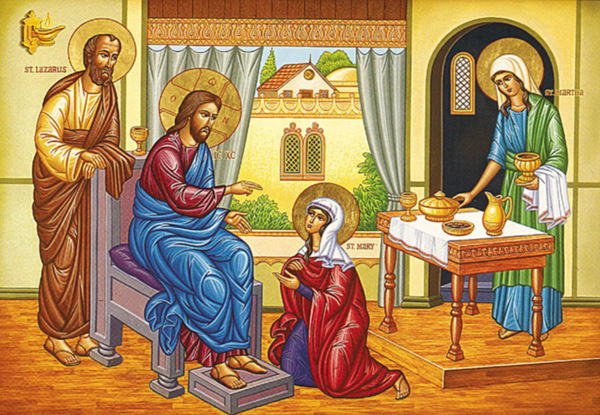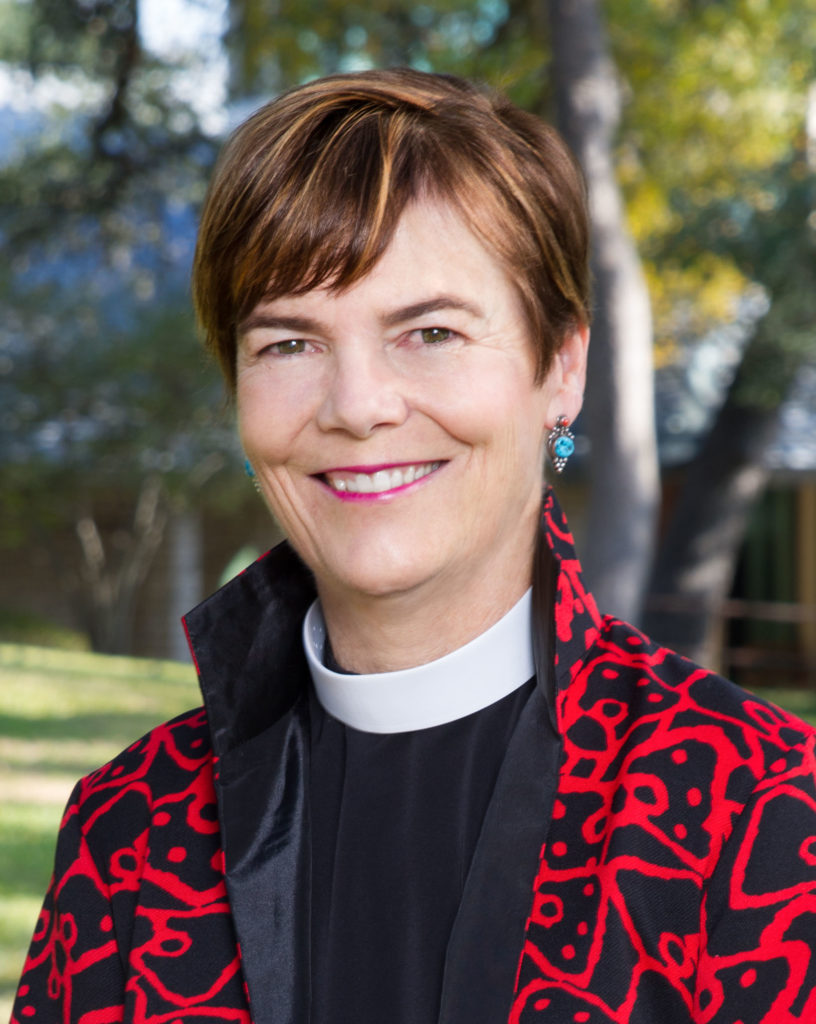
When I was very little, I used to visit my mother’s mother. And my mother’s mother’s mother lived upstairs. Her room was a mysterious place, alluring and a bit forbidding. She was in her mid-90s, of German descent, a faithful Lutheran, a holy woman. What I remember about going up to call on her in her room was the scent. The crystal bottles on her dresser of old perfumes, jars of unknown unguents, clothing and bedding all emitting a faint breath of long, long living and of significance. One note was lily of the valley, the first I knew of that flower, before I encountered it growing in the garden.
When my first daughter was born I remember how her infant body smelled – of milk and flesh, of moisture, sweet and sour and irresistible. You wanted to be close hour after hour.
In the diocese of Massachusetts, where I was first ordained, the priests would go to St. Paul’s Cathedral on the Tuesday in Holy Week for the Blessing of the Oils, to renew our ordination vows and to be given a little vial of oil for our ministries in the year to come. It was pungent and spicy, and its fragrance was familiar, but unlike anything else. It was the fragrance of holiness.
Mary of Bethany is the priest who presides on the Monday of Holy Week. At the fulcrum of the gospel of John, between the death and raising of Lazarus and the crucifixion and resurrection of Jesus, she anoints Jesus’ feet with a pound of costly perfume made of pure nard and wipes them with her hair. Her sacramental substance is this precious oil, and it touches all who eat at the table, all who serve, those who understand and those who do not. “The house was filled with the fragrance of the perfume.”
The anointing is the sacrament of joy, of beauty, of celebration. It is the sign of loving, of intimacy, of abiding. It means grief and goodbye. Anointing with oil honors the body of Jesus, with them now, and soon to be gone.
We know this holy day and the holy week ahead through that most profound faculty, the sense of smell. The olfactory sacrament circumvents logic.
Krister Stendahl taught Ten Commandments of Preaching. One of the most important was:
“No moral lessons on high holy days.”
In Holy Week we need not seek instruction. Today, tomorrow, in the dark hours of Friday and Saturday, with the ministry of Mary of Bethany, we may simply breathe the fragrance of the perfume.
How are you anointed?
What other sensory memories bring you closer to the sacrament?

The Very Rev. Cynthia Briggs Kittredge, ThD, is dean and president of Seminary of the Southwest. The focus of Dean Kittredge’s leadership is the formation of Christian leaders in community for the vitality of the church and to advance God’s mission of reconciliation. She believes that critical engagement with scripture, tradition, and context, energized by imagination, and grounded in prayer is the center of formation for mission. In the wider church, Dean Kittredge is a respected scholar and preacher who teaches and leads retreats on the vital intersection of scripture, spirituality, and preaching for Christian leaders. In her role as dean and president, she continues to form students at Southwest in creative and faithful approaches to biblical studies, early Christian history, Greek reading, and the embodied practice of liturgical leadership. Dean Kittredge is the eighth dean and president of Seminary of the Southwest. She was appointed in 2013 after serving on the faculty as the Ernest J. Villavaso, Jr. Professor of New Testament and as academic dean. Committed to theological education for the church, Dean Kittredge has served as a member of the Steering Committee for Theological Education in the Anglican Communion, as Chair of the Board of the Episcopal Evangelism Society, and President of the Anglican Association of Biblical Scholars. A biblical scholar valued by her colleagues for her insight and generous collegiality, Dean Kittredge is a contributor to The New Oxford Annotated Bible and the Women’s Bible Commentary, and the author of Conversations with Scripture: The Gospel of John and Community and Authority: The Rhetoric of Obedience in the Pauline Tradition. She co-edited The Bible in the Public Square: Reading the Signs of the Times and Walk in the Ways of Wisdom: Essays in Honor of Elisabeth Schüssler Fiorenza. She is the co-editor of the Fortress Commentary on the Bible: The New Testament (2014). Fascinated by the interplay of intellect and imagination in the interpretation of scripture, she wrote A Lot of the Way Trees Were Walking: Poems from the Gospel of Mark (Wipf & Stock, 2015). Prior to joining the seminary faculty in 1999, Dean Kittredge taught at Harvard University and the College of the Holy Cross. She serves as assisting priest at The Episcopal Church of the Good Shepherd in Austin. She is married to Frank D. Kittredge, Jr. and they have three grown children.

